LA REVUE RUSSE
54
CIRCULATIONS, ÉCHANGES, MIXITÉS
L’argent et le pouvoir
Michel Muszynski
Paper money, part of the cultural heritage
The first banknotes in Russia go back to 1769. Throughout two and a half centuries, several types of notes were used, with various success and stability. For a century, from the end of the XVIIIth to the end of the XIXth century, the value of the paper rouble in silver roubles varied greatly, depending on the financial situation associated in particular with the wars between Russia and the Ottoman Empire. After a 20-year period of stability between Count Witte’s monetary reform, which introduced the gold standard in 1897, and the First World War, several periods of harsh inflation under the Soviet regime and the Yeltsin years led to semi-permanent financial turmoil, during which the value of banknotes underwent a series of collapses. During the civil war from 1918 to 1920, there was a great quantity of local banknote issues throughout the enormous Russian territory. Russian paper money is thus a vast field of interest for historians and collectors.
Serge Rolet
Observations on “Poverty” of the Soviet intelligentsia at the time of the great turn around
The Soviet artistic intelligentsia suffers from material and housing shortage. There is a serious lack of money and the introduction of rationing makes the day-to-day life more difficult. The sentiment of poverty of the intellectuals derives mainly from their difficulty in maintaining a “bourgeois” lifestyle. They seek, on the one hand, through their relationship with the leaders, to gain access to “special supplies” [спецснабжение], and on the other hand, to maximize their revenue. In the publishing sector, we observe that the quest for profit, and competition from project managers, authors and translators, etc., allows those who are most active to sign very lucrative contracts.
Philippe Comte
1964-2019 : The Great Mutation of the Soviet Oligarchy
The purpose of this paper was to show that Russia has been managed for a century by a small oligarchy, which has succeeded in being obeyed by a large bureaucracy. It is a statocracy, run by the oldest ruling class in the world, the same one that once ruled the Assyrian Empire, ancient Egypt, the great modern empires. The Soviet bureaucracy was consolidated in the 1920s and soon imposed the ruthless exploitation of the work of millions of Soviet citizens, to the point of enslaving part of its population - several millions - in labor camps, between 1930 and 1958. The Soviet regime indeed had almost always been, from its beginnings to its end, an oligarchic regime led by a very small minority, a minute group of men who made the most important decisions. The system reached its peak in the 1970s and could boast at that period indisputable successes in many fields. But it was to understand little by little that its end was nearing, and that the time had come to switch to another method of managing society, which would give way to individual initiative, to local self-management, freedoms and human rights, like the main western powers that had taken the lead in this area. The Soviet oligarchy thus began, around 1980, its great mutation. Once Gorbachev suppressed fear, the oligarchy rediscovered an actor it had forgotten : the people. Yet, forty years later, it is still an oligarchy which manages the immense country, one that has become, because of ever-growing intrigue, greed, and repression, one of the most unequal societies in the developed world.
Mixités/mélanges
Charles Bolduc
Joseph Frank : une vie au cœur de Dostoïevski
Joseph Frank†
Dostoevsky’s Discovery of ‘Fantastic Realism’
The purpose of this paper is to take a fresh look at two minor works of Dostoevsky, Petersburg Visions in Verse and Prose and The Insulted and Injuried. Taken together, they throw new light on the mysterious transition period in Dostoevsky’s development between his release from Siberian captivity and the writing of Notes from Underground. In the Petersburg Visions, his literary vision was based on an intuition of the real which grasped the psychically unusual and the extraordinary (the “fantasy”) as a clue to the social forces operating beneath the surface of the everyday ; but in The Insulted and Injuried, Valkovsky is Dostoevsky’s first effort to dramatize the fearful potentialities – as he saw them – of the radical ideology of the early 1860s. Dostoevsky has then found the new point of departure in “reality” that would generate the “fantasy” he had claimed in the Petersburg Visions as the characteristic mode of his artistic vision.
Ludmila Seliverstova†
Memories of ten years in the Gulag in Kazakhstan
Ludmila S. (Mila) was arrested in Kiev, during the night of June 23rd 1941. Ten years after her release, she started to write down her memories : eight hundred pages of typescript in four bundles which she tried to get published in Paris in 1972. Part of it, slightly modified, appeared in Raduga (Kiev, 5-6, 1982, pps. 8-68), but publi-cation of the rest was halted. She was my aunt. She entrusted her typescript to me. I have translated some parts of it which offer an interesting vision now that the experiences of women are valued. She was thirty three years old, married, and had two children. Positive and cultivated, she overcame her personal tragedy by excelling in work and theatrical activities. She loved the beauty of the location at the foot of the Altaï and she looked out for her fellow detainees. In the latter years, they disappeared, and she lost courage, even though the rigour of the controls relaxed. I give here an extract from this work, which I have translated and accompanied with a commentary.
Hélène Menegaldo
Paths of Russian Exile (1917-27)
The aim of this article is to record the phenomenon of twentieth century Russian emigration in a historical perspective, and summarise its sources and the different stages of its development. Exile was not only a single phenomenon following the 1917 Bolshevik revolution, but a complex historical process rooted in the previous century. Global conflict, the civil war and the defeat of White Russian armies caused departures from the country on a massive scale, which led to the dispersion of refugees throughout the world and the advent ofa “Russia beyond borders”.
Valéry Kislov
L.T.R. –Speaking Criminal Sleng
The subject of the article is the expansion of the criminal (“thieves’”) slang in the Russian public and media space during the last 20 years and its assimilation by the common everyday language. In particular, the widespread slang terms are studied, including those recently popularized by prominent politicians and news-makers. Each term in the brief glossary is accompanied by an etymological note, a lexical explication, a contextual description with examples and references, as well as with several variants of translation into French. Also suggested are some ways to analyze the impact of argotisaton on the development of the Russian language and the mentality of its speakers.
Konstantin Shorokhov
Building a relationship with public authorities : The Russian Red Cross in search of its place
The objective of this article, structured in two parts, is, on the one hand, to analyse the regulatory framework which governs the action of the Red Cross in Russia and to show its effects and, on the other hand, to analyse how cooperation between this voluntary organisation and the public authorities promotes the implementation of its activities. In particular, it is shown that, integrated de facto into the NGO environment, the Russian Red Cross seeks to reinforce its role of auxiliary to the public authorities prescribed by the Statutes of the International Red Cross and Red Crescent Movement. At the same time, it benefits from a range of financial and non-financial public support, which favours its action at regional and local level. This analysis is based on a study of documents produced by the organisation and on an interview survey of Red Cross managers in the Novgorod and Pskov regions located in the North-West of Russia.
L’internationale artistique
Catherine Géry
Zinaida Vengerova : Russian literature in Mercure de France/French literature in The Herald of Europe
Zinaida Vengerova was a conveyor of literature who, all her life, to-ed and fro‑ed between several continents, and two in particular : those of European (or more specifically French) and of Russian symbolism, which she greatly contributed to establishing in the literary field of her home country. In her articles for journals such as Vestnik Evropy (The Herald of Europe) or Servernyj Vestnik (The Northern Messenger), she popularized the names and works of Verlaine, Mallarmé and Rimbaud among Russian readers, but also those of Laforgue and Moreas, or the Belgian Émile Verhaeren. Writing, too, for Mercure de France, she introduced readers above all familiar with the likes of Tolstoy or Turgenev to the veritable spiritual and aesthetic revolution that the emergence of symbolism constituted in Russia. In this paper, I shall look at three articles : Vengerova’s article published in Vestnik Evropy no 9 in 1892 on the French Symbolists ; L.D.’s article on this article by Vengerova published in Mercure de France in 1893 ; and finally Vengerova’s article on Russian symbolism published in Mercure in November 1898. This comparative approach shall allow me to show that, for Vengerova, the test of foreignness and the daily relationship to cultural alterity were the best way to apprehend one’s own contours and paint one’s own profile, and that to see oneself as “foreign to one’s self” constitutes an adequate way – one that is neither exclusive, nor “integrationist” – to properly envisage the singularity of cultures and literature, while also recognizing their shared characteristics.
Tatiana Trankvillitskaia
Soviet Artists on Assignment and the USSR Authorities : Between Soviet Control, Artistic Freedom and Financial Challenge (The example of Soviet artistic assignments in 1920s France)
This article sets out to show the unfolding of assignments of individual Soviet artists on assignment in 1920s France. We will observe the ideological restrictions and the multiplication of institutional restraints by the Soviet authorities, aimed at limiting the number of lapses and controlling everything. Attempts by the authorities to extract financial profit from these assignments are also evident. But the study of the living and working conditions of Soviet artists in France confirms how well they assimilated and adapted, unconstrained, to the supply and demand of the French art market, as well as to certain private Parisian networks. It is appropriate to identify here the connection between these apparently contrary positions. This adaptation to the French context led to “islands” of artistic freedom, an abnormal phenomenon in the activity of Soviet artists. The point is to understand what conditions led to their emergence.
Bernard Grasset
Rachel, the Jewish Poetess, reading Trotsky
Rachel Blaustein (1890-1931), known by her pen name of Rachel, was born in Russia.Though in 1909 she has decided to live in Palestine, where she will learn Hebrew and write in that language, she remains nevertheless nurtured by Russian language and culture.She translates Russian poets, quotes them and writes a literary article about Trotsky’s Literature and Revolution (1923). Some points about the concept of culture which are expressed there, in particular its rootedness in man, the people, connect with the ideals shared by the members of the kibbutz where she lives. However, her poetry remains foreign to Trotsky’s materialism, his preference for the city, his wish to subject nature and his rejection of the Bible.
Gérard Abensour
The Lower Depths, a movie by Jean Renoir (1936) after Maxim Gorky’s play )
The transition from Russian to French has made the movie The Lower Depths by Jean Renoir, an adaptation of a stage play into a strange hall of mirrors.
The transposition demonstrates a substantial misconception of the Russian context. Maxim Gorky wrote Na Dne in 1902, in the midst of a revolutionary ferment, while Renoir made his film in 1936 at the time of the victory of the left-wing Popular Front.
In contrast to the hopelessness at the end of the play, the film finishes with an optimistic outlook, in the manner of Charlot. As in Chaplin’s Modern Times, we see the hero and his fiancée escape a miserable destiny and leave, hand in hand, to seek their happiness.
The director asked the eminent author Evgenii Zamyatin to write the screenplay and assigned a central role to Vladimir Sokoloff, two Russians ; there is little of their Russian influence in the overall tone and the film stays remote from Russian reality. To satisfy the audience he called in two great stars of French cinema, Louis Jouvet and Jean Gabin. Taking the viewer’s subconscious back into a purely French context, the film is completely detached from Gorky’s work.
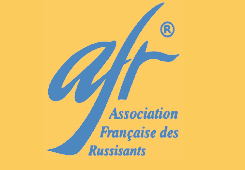
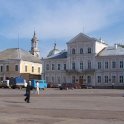




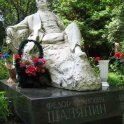



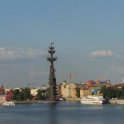





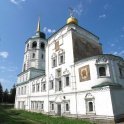

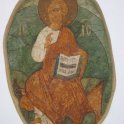

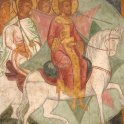

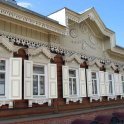

 Sommaire
Sommaire